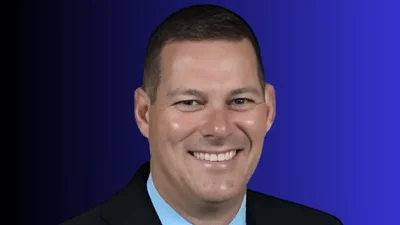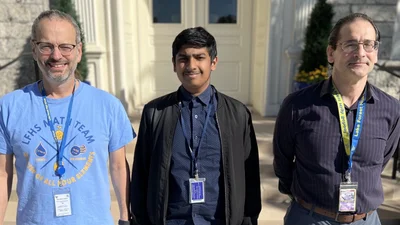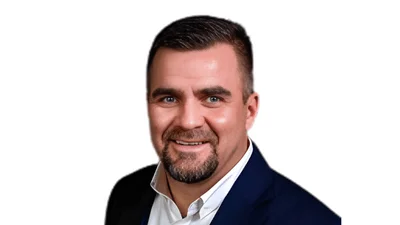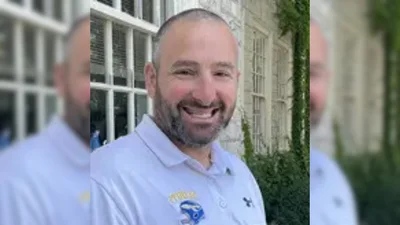Highland Park Police Department issued the following announcement on June 9.
Chief of Police Lou Jogmen presented the following remarks at the City Council meeting on Monday, June 8, 2020. A recording of the meeting is available for download.
I appreciate the questions and concerns people have about law enforcement in light of the events occurring across the country in the last week. It is important for you to know that, as Chief of Police, I have made sure that our department has worked, and continues to work, to make our relationship with the community a priority. I have worked especially hard to ensure that people of color living here in Highland Park, or visiting, are treated fairly and respectably and that we continually look for opportunities to engage in meaningful dialogue.
This evening, I plan to share with you the work that we have done in this area and some of our plans for the future. First, it is important to provide some information on the Department’s organizational structure.
The Police Department is made up of 56 sworn police officers, which includes the chief, deputy chief, commanders, sergeants and patrol officers. There are 11 civilian employees which include administrative staff, records staff and community service officers. The department also contracts with a full-time social worker and has a number of part-time positions including community service officers and crossing guards.
76% of the department’s budget is for personnel costs, which is consistent both for police departments and other municipal departments in the Chicagoland area.
It is important for our residents to know that the City and police department have multiple levels of supervision built into the structure of the overall organization. I report directly to the City Manager who oversees the day to day operations of the City, and the Manager is accountable to the Mayor and City Council, elected positions that set policy for the City of Highland Park. Our supervisory team reports to me as the Chief of Police, and works closely with other departments including Human Resources. When questions arise about an officer’s performance, we work closely together to determine an appropriate outcome and, may include discussions with the City’s legal counsel and the State’s Attorney’s Office.
The Department also has been using in-car video camera systems for nearly 20 years. These cameras have served to enhance our accountability, have assisted with the documentation of criminal activity and have helped us to improve our training. We also currently deploy non-lethal Tasers, which are equipped with cameras. Likewise, in those few instances where this response is warranted, the incident is documented on video and audio. Moving forward, we currently have Body Worn Cameras in the City's capital budget with a total investment of approximately $575,000 to equip our department. We will discuss the City's plans at a future Budget workshop this year as part of our public process.
The City of Highland Park Municipal Code establishes the creation and duties of the Board of Fire and Police Commissioners. Commissioners are civilians appointed by the City Council and work with staff on the hiring of entry-level fire and police employees. In addition, these members are also consulted in discussions regarding suspensions or termination of employees should that be necessary.
To provide some background on me, I have been involved in law enforcement for 27 years. I am member of the Illinois Association of Chiefs of Police (ILACP) and was involved with an initiative designed to address this issue. Recognizing that work needed to be done with respect to law enforcement and their relationship with communities of color, the ILACP and Illinois NAACP worked together to identify 10 Shared Principles of Law Enforcement. These principles arose from a process of lengthy discussions between law enforcement and NAACP leadership. They were borne out of a partnership and, in fact, were completed and signed in a ceremony hosted in the Old State Capital in Springfield. The very same location where President Lincoln gave his house divided speech.
In my 27 years of law enforcement, I can speak to my participation in this initiative as one of the most rewarding aspects of my career. It provided me with an opportunity to have meaningful discussions with people who have been affected by this issue. These discussions have led to a better understanding of the problems faced by communities of color and their experiences with law enforcement. These discussions have also led to the development of relationships with people like Teresa Hayley, Illinois NAACP President, Bob Moore, Springfield NAACP Chair of the Criminal Justice Committee and Dawn Johnson, NAACP Lake County. It is through these relationships that meaningful conversations can continue and, my hope is, improvements can be made with respect to the relationship between the police and communities of color.
I feel strongly about this issue and, in fact, one of the first things I did as Chief here in Highland Park two years ago was to meet with staff, each one of them, to discuss our support for these principles and our commitment to fair policing. These discussions led to our agency being the first in the state to officially endorse the principles which state:
- We value the life of every person and consider life to be the highest value.
- All persons should be treated with dignity and respect.
- We reject discrimination toward any person that is based on race, ethnicity, religion, color, nationality, immigrant status, sexual orientation, gender, disability, or familial status.
- We endorse the six pillars in the report of the President’s Task Force on 21st Century Policing. The first pillar is to build and rebuild trust through procedural justice, transparency, accountability, and honest recognition of past and present obstacles.
- We a the four pillars of procedural justice, which are fairness, voice (i.e., an opportunity for citizens and police to believe they are heard), transparency, and impartiality.
- We endorse the values inherent in community policing, which includes community partnerships involving law enforcement, engagement of police officers with residents outside of interaction specific to enforcement of laws, and problem-solving that is collaborative, not one-sided.
- We believe that developing strong ongoing relationships between law enforcement and communities of color at the leadership level and street level will be the keys to diminishing and eliminating racial tension.
- We believe that law enforcement and community leaders have a mutual responsibility to encourage all citizens to gain a better understanding and knowledge of the law to assist them in their interactions with law enforcement officers.
- We support diversity in police departments and in the law enforcement profession. Law enforcement and communities have a mutual responsibility and should work together to make a concerted effort to recruit diverse police departments.
- We believe de-escalation training should be required to ensure the safety of community members and officers. We endorse using de-escalation tactics to reduce the potential for confrontations that endanger law enforcement officers and community members; and the principle that human life should be taken only as a last resort; and
To ensure that this conversation continues, especially here in Highland Park, this past January I worked with the ILACP/NAACP to engage in the discussion with our high school students. The ILACP/NAACP have hosted a number of World Cafe meetings with students throughout the state over the past year or so. These events are designed to bring members of law enforcement together with students of color in an effort to better understand their relationship with law enforcement and where we can work to make improvements. I was very interested in hearing what our young folks were feeling about this issue and was not disappointed. I worked with the ILACP/NAACP to host an event this past January in Highland Park and it was very informative. Our students impressed all of my law enforcement colleagues with their insight and willingness to share their experiences and suggestions. In fact, since the event, I have maintained a working relationship with the high school group, SOAR (Students Organized Against Racism) and plan to continue working together in the fall when school, hopefully, resumes.
Police officers and their authority are regulated by federal and state laws, as well as, local municipal codes and applicable court decisions. In addition, Highland Park Police officers and their duties are governed by an Employee Manual, City Administrative Orders, as well as, 140 Police Department General Orders and 47 Police Department Special Orders. The Department is accredited by a national, civilian accrediting body known as the Commission on Accreditation for Law Enforcement Agencies or CALEA. As such, our policies are currently guided by the best practices and standards governing law enforcement as determined by relevant research and experiences throughout the country.
It has been reported in the media that the 8 Can’t Wait Policies should be advanced. The City currently has policies and practices in place or are working to addresses these areas including but not limited to the following:
Prohibitions on choke holds;
De-escalation training;
Use of force;
Duty to intervene;
When at all possible, exhausting all other means and warning before shooting; and
Comprehensive reporting.
CALEA not only assists in policy creation, they also provide oversight. Participating agencies are routinely audited to ensure policies and practices conform to the established standards. Every four years, trained assessors visit the department to provide an onsite assessment of our compliance.
With respect to training, I can assure you that our officers receive a significant amount of training, both mandatory and elective, and much of the training is guided by state law. It starts immediately in the police academy and the quality and quantity of training on this topic has increased over the years. The following list, though not all-inclusive, depicts some of the things we do through training to help foster positive relationships and partnerships with our community:
- Police Academy instruction on cultural awareness for new officers
- Through monthly Court Smart (online) lessons:
- Civil Rights
- Human Rights
- Procedural Justice
- Cultural Competency
- Constitutional and Proper Use of Law Enforcement Authority
- Last year, our Department made a significant investment and acquired department wide Procedural Justice training from the University of Illinois at Chicago/US Department of Justice
- We are nearing a point where every officer will have been trained as a Crisis Intervention Team member designed to enhance our mental health response
- Officers have made visits to the Illinois Holocaust Museum & Education Center and received information about:
- Moral & ethical decision making
- Responsibilities officers have to society and each other
- Stereotyping and abuse of authority
- Empathizing and connecting with individuals
- Current hate crime legislation
- Review of high profile hate crimes
- Ethics training (biennially)
- Citywide, annual cultural diversity training
- Implicit Bias Training has been conducted for staff by the Anti-Defamation League (ADL)
- Strong emphasis on de-escalation during use of force training
The Highland Park Police Department is committed to fair and equitable policing. The members of our department truly work to ensure we develop a departmental culture that demonstrates respect for all and a culture that values the rights of all people, from every background. As I sit on the Executive Board for the ILACP, I can say with confidence that Illinois Law Enforcement has been engaged with this issue. The current President for the ILACP has recently created a new committee, the Diversity Committee, with a focus on addressing the relationship between law enforcement and communities of color. I made sure that Highland Park has a seat at that table, in an effort to be part of the conversation and, hopefully, the solution. Deputy Chief Bill Bonaguidi will be representing us.
We are committed to making a difference in this area. And it’s important to know that we in Highland Park have been working on making improvements based on law enforcement’s recognition and understanding of the need to better our relationship with communities of color and that we will be relentless in our work to maintain equitable, fair and just policing in Highland Park.
I can tell you that men and women of the Highland Park Police Department are proud of the proactive work we have done to date. We also know that more work needs to be done ensure we maintain the trust of our community. We certainly understand the anger people have been feeling. Everyone that I have spoken to in law enforcement is angry too. My hope is that we reach a point where we take that anger and use it to facilitate positive, meaningful change. That change will only happen when we are able to sit down, make accurate assessments about where we stand with respect to this issue and have constructive and honest conversations about where we need to go in this partnership between law enforcement and the communities they serve. The members of our Department understand both the challenges and the opportunities that lie ahead and we are committed to building on our partnership with the community.
Original source can be found here.






 Alerts Sign-up
Alerts Sign-up